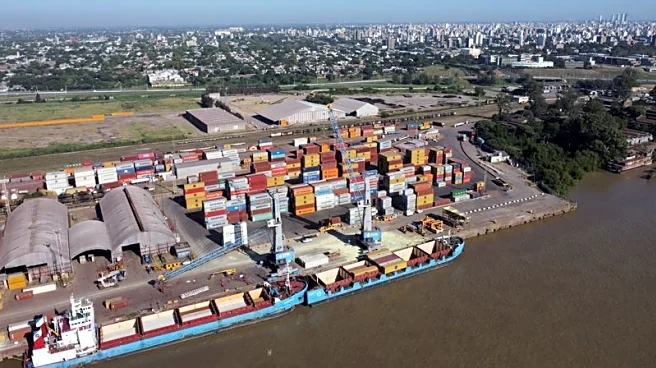By Rodrigo Campos
NEW YORK (Reuters) -The World Bank nudged up its estimate for economic growth in Latin America and the Caribbean next year, though the region remains the world's slowest-growing due to
stubborn inflation, high debt and rising uncertainties due to U.S. tariff policies.
The region's economy is likely to expand 2.5% in 2026, up from a June forecast of 2.4%, the World Bank said. Its forecast for this year was unchanged at 2.3%, which would represent a slight improvement over last year's 2.2%.
Brazil's estimate for 2025 remained at 2.4%, with growth seen decelerating to 2.2% next year. Mexico's economy is now expected to expand 0.5% this year, up from the June forecast of 0.2%, with growth accelerating to 1.4% next year.
"Governments in the region have steered their economies through repeated shocks while preserving stability," said Susana Cordeiro Guerra, vice president for Latin America and the Caribbean at the World Bank.
"Now is the time to continue building on that foundation—accelerating reforms to improve the business climate, invest in enabling infrastructure, and mobilize private capital."
Argentina remains the fastest growing among the region's largest economies, but its 2025 estimate was cut by the most, to 4.6% from 5.5%. For 2026, growth for the grains exporter is expected to decelerate to 4%.
Bolivia's economy is now seen contracting this year and next, presenting challenges for the winner of a presidential runoff vote scheduled for October 19.
The World Bank said while there is expectation for stable prices, inflation targets have gotten harder to meet and interest rates are falling more slowly. Uncertainty about global trade policies - in the face of tariffs imposed by the United States - has weighed on investment across the board.
The report noted that familiar barriers like weak infrastructure, a bias in favor of established companies, and poor education at all levels were inhibiting entrepreneurship and how big companies can grow.
"Firms want to hire more people, but they cannot get the workers," said William Maloney, chief economist for Latin America and the Caribbean at the World Bank.
"And it's some combination of the school system and the training system that's not doing that right."
(Reporting by Rodrigo Campos in New York; Editing by Edwina Gibbs)











